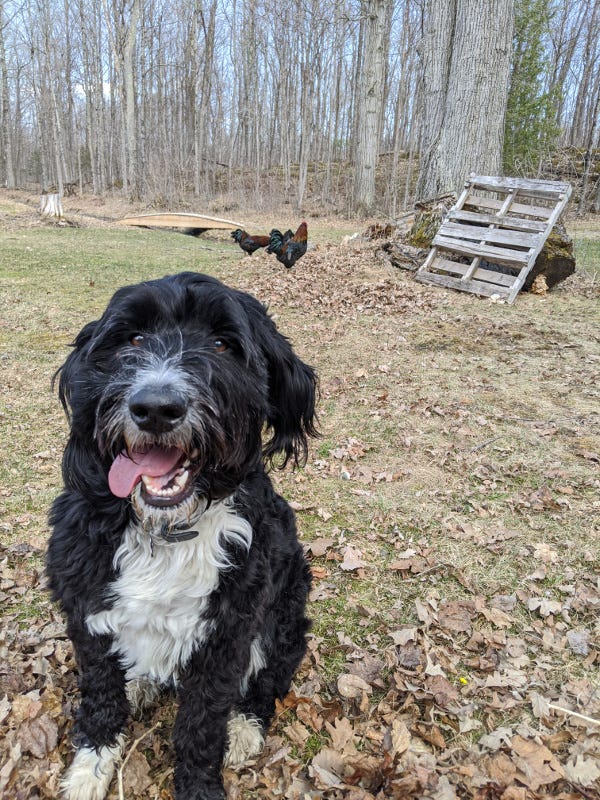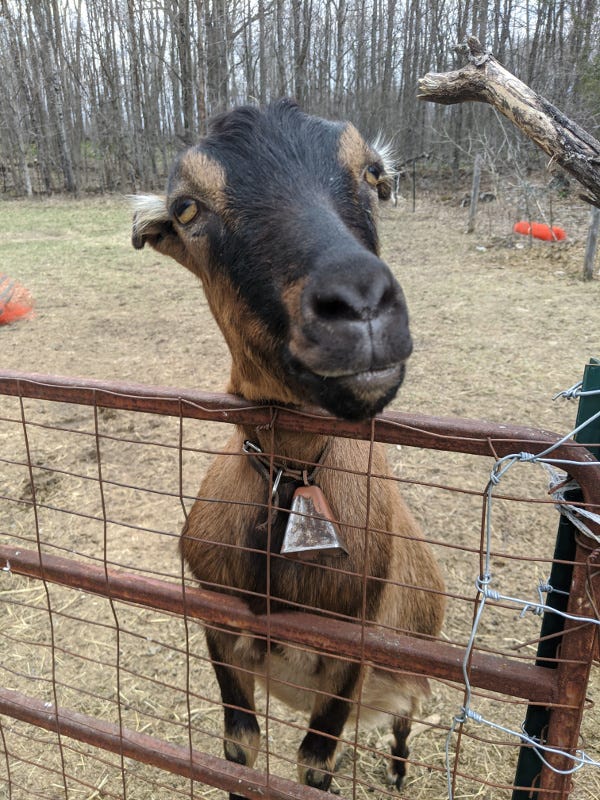easyDNS is pleased to sponsor Jesse Hirsh‘s “Future Fibre / Future Tools” segments of his new email list, Metaviews
An exploration of our current and shifting epistemology
A primary purpose of Metaviews is to create critical distance so that we might see beyond the frame and glimpse the bigger picture, or at least derive insights to inform our sense of what is going on.
Our past two issues dealt with our changing relationship with education, and our changing relationship with privacy. One of the central themes to these two issues, and much of our discussion of the last several weeks, is that change is underway. We’re doing our best to both understand that change, but more importantly participate in it.
That strikes me as the point of pursuing knowledge and understanding. Fuel for action. Intelligence that informs the strategy that drives that action.
Normally this translates into confidence, or at least motivation, and in the midst of this crisis, I’m finding both to be in short supply. No matter how much knowledge is gathered, the uncertainty does not diminish, and the sense that we don’t know what we don’t know remains overwhelming.
Let us then take a further step back, and reflect upon the epistemology at play as a result of this pandemic.
For example, how do we know what we know? We find ourselves not only in a great renaissance of conspiracy theory, where deliberate misinformation and manipulation runs rampant, but also in a fast moving scientific environment in which assertions made one day are disproved the next.
While I think it is exciting and encouraging to live in (and be part of) the greatest scientific experiment ever conducted, it can also be confusing, difficult to follow, and requires a level of critical thinking that is exhausting and relatively scarce.
It’s also not an isolated epistemological disruption. If this was only happening in one area of society, or one sector of the economy, we might be able to manage the cognitive dissonance, but when it happens everywhere at all once, our neural circuits naturally become stressed and confused.
One of the benefits of aging, is the humility and wisdom that comes from a growing appreciation of what we don’t know. Yet in this particular crisis, the disruption comes from realizing that we actually didn’t know what we thought we knew, and that what we know now may permanently change how we treat both what we don’t know, and more importantly, what we don’t know about what we don’t know.
This is part of the paradox of epistemology, and why it can be fun to entertain. Donnie Rumsfeld is generally associated with articulating the “known knowns” which emphasizes the difference between the known unknowns and the unknown unknowns.
What I’m asking you to do, is think about the epistemology of this crisis, and your relationship with it. What do you know, and why? What do you know that you don’t know, why, and how could you know it? And finally, what might fall into the category of things you don’t know that you don’t know?
The point of this exercise is to shake up each category and change them.
For example we should be regularly assessing what we know, and whether it remains the case, and how it is we know that.
For myself this has manifest with frustrations that people are still focusing on sanitizing surfaces and wearing gloves when there is increasing evidence that the virus is transmitted airborne in closed environments like homes, long term care facilities, hospitals, vehicles, and offices.
carl parker
@parkertwc
Most COVID-19 “infection events were indoors, with people closely-spaced, [and] the main sources for infection are home, workplace, public transport, social gatherings, and restaurants. This accounts for 90% of all transmission events.”
The Risks – Know Them – Avoid Them
It seems many people are breathing some relief, and I’m not sure why. An epidemic curve has a relatively predictable upslope and once the peak is reached, the back slope is also predictable. Assuming we have just crested in deaths at 70k, that would mean that if we stay locked down, we lose another …
erinbromage.wixsite.com
May 8th 2020
Similarly we should also be taking this opportunity to assess what we know we don’t know, so that we might learn and obtain that knowledge.
For many people this has come in the form of making bread, or preparing food, or gardening and alternative sourcing of food. This knowledge doesn’t have to be in the pursuit of self-sufficiency but that is a relevant theme in this moment.
I’m particularly focused on what I know I don’t know when it comes to economics. I’m thinking about the skills I can obtain, or the knowledge I can gather that I can then turn around into income. On a semi-fantasy level this involves learning how to operate an excavator, yet on a more practical level I’m upgrading my Internet networking knowledge so I can go into the business of helping create and enable “smart farms”.
However all of that leads us to the third category, the vast wilderness of unknown unknowns, the things we don’t know that we don’t know. This terrain should not be intimidating, as it is relatively easy to use your imagination to find things that were previously unknown and make them known while still recognizing that there is much we need to know about them.
For example the concepts of inflation and deflation were previous to this crisis things I did not know that I didn’t know. Now I know that I don’t know them, and might have the desire to know them in the near future. Though I genuinely hope I don’t need to know about them.
Similarly I’d say that a lot of both epidemiology and economics were areas that we didn’t know that we didn’t know until this crisis. Now most of us can acknowledge that we know we don’t know these things, but there are now many others who think they know these things but really they don’t know that they don’t know. 😉
Individually all of this matters because many of us find ourselves struggling with how to survive, whether that means managing our health, or our income.
Our collective political economic future is uncertain, and the choices we make today may have a significant impact on our choices in the future.
Like “re-opening” society for example. How do we balance the desire to ramp up society with the need to protect our public health? What policies should we embrace in the present that offer us the greatest opportunity and options in the future?
Epistemology has an important role to play in framing these (and other) questions, as we should not take for granted what we know and don’t know.
My concern moving forward, is that a failure to appreciate or employ epistemology will inevitably lead to epistemicide. Epistemicide is the act of destroying or discarding a way of knowing or killing a knowledge system.
Beyond epistemicide: Knowledge democracy and higher #education, by Budd Hall @buddhall. Download https://t.co/hyVqmIswu9 pic.twitter.com/mpaMbbSysI
— RYB Women (@RYBWomen) March 28, 2017
Where this is most visible is with regard to indigenous and land based knowledge, however I think it also applies to what is happening amidst this crisis. Our rush to move forward, our dependence upon complex systems we don’t understand, may lead us to embrace one way of knowing compared to another.
For example I believe that dialogic knowledge is the foundation of democracy. Call me Socratic, but I feel that knowledge is best transferred, translated, and democratized via dialogue and conversation. That’s the point of parliament, that’s the point of public discourse and public spaces.
That doesn’t mean obedience to expertise, nor does it involve social media amplification or suppression. Instead it involves negotiated meaning and obtaining the consent of the governed.
We can’t demand compliance with public health measures, we must earn it through public education, trust, and engagement.
This recognizes and assumes a diversity of epistemology. A range of ways that people come to know (or don’t know).
We should afford people as much freedom as possible when it comes to their desire for knowledge, and how that knowledge is obtained. That doesn’t mean we have to agree with them, and it doesn’t always mean we have to listen to them.
We ended last week with thoughts on the role of free speech in this pandemic, and a week later it feels even more relevant. The process is the purpose. We can’t demand or expect people to arrive at the conclusions we have, but we can, in a democratic society, continue to dialogue and debate until a mutual compromise is reached, or until enough common ground exists for us all to live together, peacefully, and in good health.
I reflect on this relationship between epistemology and trust as someone who lives with both a herd, a flock, and a dog like pack (of canids and humans). I’m fascinated by how these animals learn, the knowledge they exercise, and their refusal to comply with measures they don’t like.

Especially the goats. Lucy Parsons, pictured below, is true to her namesake and does as she sees fit.

Finally this talk on Epistemicide is interesting, and relevant. We’ll explore this concept in greater depth in a future issue, especially in the context of machine learning, predictive analytics, and artificial intelligence.
Enjoy the weekend, in so far as the days of the week still matter.
